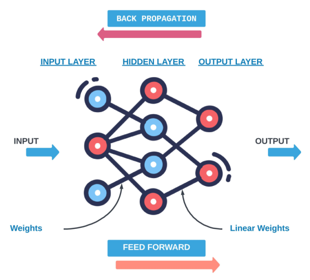Research on Personalized Teaching in Smart Classroom Based on Deep Learning
Keywords:
BP algorithm, Deep learning, Personalized teaching, Smart classroomAbstract
Personalized instruction in a smart classroom Education has evolved into a vital and effective instrument in the classroom. Smart classroom education is a strategy for focusing curriculum preparation on encouraging students to pursue research ideas. Different subjects necessitate the advancement of research. Smart classroom is studied and the results project since it is the foundation for research in either topic. Micro-courses will also be a supporting learning model for exploring any subject from such a research viewpoint, rather than a full course for just a subject. In this study, we are going to research on Personalized Teaching in Smart Classroom based on Deep Learning. The Back Propagation (BP) algorithm, that is a Deep Learning method, is developed in this study work to enhance research in smart classes.
Downloads
References
F. Zhao, F. Yan, H. Jin, L. T. Yang, and C. Yu, “Personalized mobile searching approach based on combining content-based filtering and collaborative Filtering,” IEEE Syst. J., vol. 11, no. 1, pp. 324–332, 2017.
Y. Shi and X. Yang, “A personalized matching system for management teaching resources based on collaborative filtering Algorithm,” Int. J. Emerg. Technol. Learn. (iJET), vol. 15, no. 13, p. 207, 2020.
A. B. F. Mansur, N. Yusof, and A. H. Basori, “Personalized learning model based on deep learning algorithm for student behaviour analytic,” Procedia Comput. Sci., vol. 163, pp. 125–133, 2019.
Y. Ding, X. Zhao, Z. Zhang, W. Cai, and N. Yang, “Graph sample and aggregate-attention network for hyperspectral image classification,” IEEE Geosci. Remote Sens. Lett., vol. 19, pp. 1–5, 2022.
X. B. Jin, W. T. Gong, J. L. Kong, Y. T. Bai, and T. L. Su, “PFVAE: A planar flow-based variational auto-encoder prediction model for time series Data,” Mathematics, vol. 10, no. 4, p. 610, 2022.
S. Liu, Y. Dai, Z. Cai, X. Pan, and C. Li, “Construction of double-precision wisdom teaching framework based on blockchain technology in cloud platform,” IEEE Access, vol. 9, pp. 11823–11834, 2021.
H. Lu, “Research on personalized course selection platform for college students based on hybrid recommendation,” C e Ca, vol. 42, no. 5, pp. 1948–1952, 2017.
J. Cai, “Research on personalized recommendation algorithm in e-commerce based on hybrid algorithm,” C e Ca, vol. 42, no. 2, pp. 590–594, 2017.
C. Xiao-Long, D. Bo, S. Guo-Ping, and Y. Yan, “Multi-collaborative filtering algorithm for accurate push of command information system,” Revista de la Facultad de Ingenieria, vol. 32, no. 7, pp. 165–172, 2017.
Y. Cui, “Intelligent recommendation system based on mathematical modeling in personalized data mining,” Math. Probl. Eng., vol. 2021, article ID 6672036, 11 pages, 2021.
Q. Yang, P. Yuan, and X. Zhu, “Research of personalized course recommended algorithm based on the hybrid recommendation,” MATEC Web Conf., vol. 173, no. 3, article 03067, 2018.
J. T. Song, “Construction of corporate investment decision support model based on deep learning,” Sci. Program., vol. 2021, article ID 2665041, 7 pages, 2021.
H. Xia, J. J. Li, and Y. Liu, “Collaborative filtering recommendation algorithm based on attention GRU and adversarial Learning,” IEEE Access, vol. 8, pp. 208149–208157, 2020.
X. Liu, “A collaborative filtering recommendation algorithm based on the influence sets of e-learning group’s behavior[J],” Cluster Comput., vol. 22, no. 5, pp. 2823–2833, 2017.
C. Ji, “A heuristic collaborative filtering recommendation algorithm based on book personalized Recommendation,” Int. J. Performability Eng., vol. 15, no. 11, p. 2936, 2019.
Y. Wu, X. Zhang, H. Yu, S. Wei, and W. Guo, “Collaborative filtering recommendation algorithm based on user fuzzy similarity,” Intell. Data Anal., vol. 21, no. 2, pp. 311–327, 2017.
Z. Cui, X. Xu, F. Xue et al., “Personalized recommendation system based on collaborative filtering for IoT Scenarios,” IEEE Trans. Serv. Comput., vol. 13, no. 4, pp. 685–695, 2020.
C. E. Welch Bacon and K. Gaither, “Personalized learning pathways: Using technology to promote learning beyond the classroom,” New Directions for Teaching and Learning, no. 162, pp. 91–102, Jun. 2020, doi: 10.1002/tl.20394.
Y. W. Li, “Transforming conventional teaching classroom to learner-centred teaching classroom using multimedia-mediated learning module,” Int. J. Inf. Educ. Technol., no. 2, pp. 105–112, 2016, doi: 10.7763/ijiet.2016.v6.667.
K. A. Roberts, “Ironies of effective teaching: Deep structure learning and constructions of the classroom,” Teach. Sociol., no. 1, p. 1, Jan. 2002, doi: 10.2307/3211517.
S. U. K., S. Sudhir, and S. Palaniappan, “Elderly behavior prediction using a deep learning model in smart homes,” in Applications of Deep Learning and Big IoT on Personalized Healthcare Services, IGI Global, 2020, pp. 115–131.

Downloads
Published
How to Cite
Issue
Section
License
Copyright (c) 2022 Jing Gao, Normala Ismail, Abdullah Mat Rashid, Fukai Cao

This work is licensed under a Creative Commons Attribution-ShareAlike 4.0 International License.
All papers should be submitted electronically. All submitted manuscripts must be original work that is not under submission at another journal or under consideration for publication in another form, such as a monograph or chapter of a book. Authors of submitted papers are obligated not to submit their paper for publication elsewhere until an editorial decision is rendered on their submission. Further, authors of accepted papers are prohibited from publishing the results in other publications that appear before the paper is published in the Journal unless they receive approval for doing so from the Editor-In-Chief.
IJISAE open access articles are licensed under a Creative Commons Attribution-ShareAlike 4.0 International License. This license lets the audience to give appropriate credit, provide a link to the license, and indicate if changes were made and if they remix, transform, or build upon the material, they must distribute contributions under the same license as the original.





